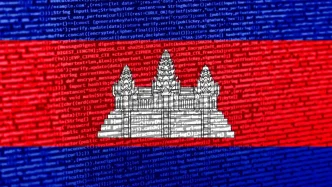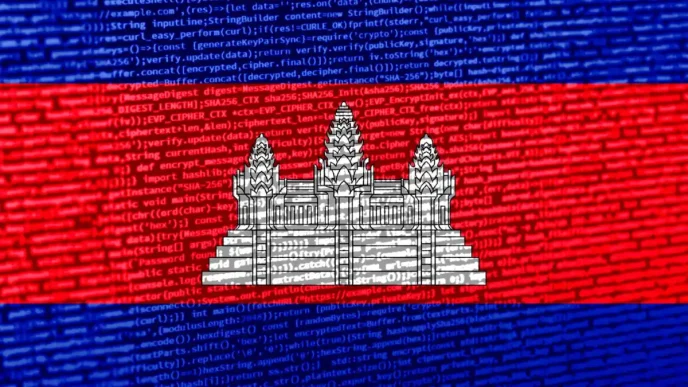Ho Chi Minh City – A sprawling counterfeit powdered milk operation targeting vulnerable populations has been uncovered by Vietnamese authorities, raising urgent concerns about public health and regulatory oversight. The Ministry of Public Security recently announced charges against eight individuals linked to the production and sale of 573 fake brands, specifically marketed to diabetics, kidney patients, premature infants, and pregnant women. With revenues nearing VNĐ500 billion (US$21 million), the scale of the deception has shocked the nation and exposed systemic weaknesses in Vietnam’s fight against counterfeit goods.
A Sophisticated Network of Deception
The operation, active since August 2021, involved the creation of two companies, Rance Pharma and Hacofood Group, which served as fronts for manufacturing and distributing the fraudulent products. According to police reports, the network operated across Hanoi and surrounding provinces, flooding the market with counterfeit powdered milk that falsely claimed to contain premium ingredients like bird’s nest extract, cordyceps, macadamia powder, and walnut powder. Investigations revealed these claims were entirely fabricated, with the products instead made from substandard materials and harmful additives that posed significant health risks.
Authorities have defined counterfeit powdered milk as any product containing less than 70 percent of the advertised ingredients, a threshold these products consistently failed to meet. The deliberate targeting of vulnerable groups—those reliant on specialized nutrition—has amplified the outrage, as the health consequences for consumers could be severe. For individuals with conditions like diabetes or kidney failure, or for fragile newborns and expectant mothers, the ingestion of subpar or harmful products could exacerbate existing medical issues or lead to new complications.
Health Risks and Consumer Betrayal
The health implications of this scandal are profound. Counterfeit nutritional products, particularly those marketed as medical or specialized foods, can cause direct harm through the inclusion of unsafe additives or the absence of critical nutrients. In this case, the use of questionable substances in place of promised high-quality ingredients has raised alarms among health experts. While no specific illnesses or deaths have been officially linked to these products as of yet, the potential for long-term damage remains a pressing concern.
Beyond the physical risks, the scandal represents a deep betrayal of consumer trust. Families purchasing these products believed they were investing in the health and well-being of their loved ones, only to discover they had been deceived on an industrial scale. The emotional and financial toll—compounded by the high cost of these so-called premium products—has left many feeling vulnerable and exploited.
A Parallel Crackdown on Counterfeit Candy
In a related development, Vietnamese police recently arrested five individuals, including two social media influencers, for their alleged role in manufacturing and selling counterfeit food products under the brand name Kera candy. Marketed as a health-conscious snack, the candy was found to contain just 0.51 grams of fiber per box—far below the advertised amount—and dangerously high levels of sorbitol, a sweetener known to cause digestive issues in excessive quantities. This separate but related case underscores the pervasive nature of counterfeit goods in Vietnam, extending beyond powdered milk to other consumables.
The involvement of influencers in promoting these fraudulent products has added a modern twist to the issue, highlighting how social media can be weaponized to amplify deception. With large followings and perceived credibility, these individuals played a key role in marketing the candy to unsuspecting consumers, further eroding public trust in online endorsements.
Systemic Challenges in Combating Counterfeit Goods
The counterfeit milk and candy cases are emblematic of a broader challenge facing Vietnam: the proliferation of fake goods due to lax management and inconsistent law enforcement. Experts have long warned that weak regulatory frameworks and limited resources for monitoring and enforcement create fertile ground for such scams. The financial losses to legitimate businesses are staggering, but the human cost—particularly when health products are involved—is incalculable.
Vietnam’s rapid economic growth and integration into global markets have inadvertently fueled the counterfeit trade. As demand for specialized nutritional products rises, so too does the incentive for unscrupulous actors to exploit gaps in oversight. The country’s complex supply chains and fragmented regulatory systems further complicate efforts to root out fraudulent operations. While the Ministry of Public Security has made strides in cracking down on these networks, the scale of the problem suggests that much more needs to be done to protect consumers.
Government Response and Public Reaction
The Vietnamese government has vowed to strengthen measures against counterfeit goods in the wake of this scandal. The Ministry of Public Security’s swift action in charging the suspects and dismantling the operation signals a commitment to addressing the issue, but questions remain about the effectiveness of long-term strategies. Proposals for stricter penalties, enhanced inspections, and public awareness campaigns have been floated, though implementation remains a challenge in a country with limited resources for enforcement.
Public reaction to the scandal has been a mix of anger and resignation. Many consumers, particularly those who purchased the counterfeit milk for loved ones, feel betrayed by both the perpetrators and the systems meant to protect them. Social media platforms have buzzed with stories of affected families, with some users calling for harsher punishments and others expressing skepticism about the government’s ability to prevent future scams. The sentiment reflects a broader frustration with the persistence of counterfeit goods in everyday life, from food to medicine to household items.
Regional and International Implications
The issue of counterfeit goods is not unique to Vietnam, but its scale and impact in this case have drawn attention from across Southeast Asia. Neighboring countries like Thailand and Cambodia, which also grapple with fake products, may look to Vietnam’s response as a test case for regional cooperation on the issue. The cross-border nature of supply chains means that counterfeit goods produced in one country can easily find their way into others, posing a shared challenge for regulators and law enforcement agencies.
Internationally, the scandal could affect Vietnam’s reputation as a reliable supplier of food and nutritional products. With exports playing a key role in the country’s economy, incidents like this risk undermining consumer confidence abroad. Trade partners may demand stricter quality controls or certifications, potentially increasing costs for legitimate Vietnamese businesses. The government will need to balance domestic priorities with international expectations as it seeks to rebuild trust.
Path Forward: Protecting the Vulnerable
As Vietnam grapples with the fallout from this counterfeit milk scandal, the focus must remain on protecting the most vulnerable. Immediate steps to remove remaining fake products from the market, provide restitution to affected consumers, and support health screenings for those who may have been harmed are critical. Longer term, systemic reforms—ranging from stronger regulations to better-funded enforcement agencies—are essential to prevent similar scams from taking root.
The case also serves as a reminder of the importance of consumer education. Empowering individuals to identify counterfeit goods, question overly promising health claims, and report suspicious products can complement official efforts. At the same time, the private sector has a role to play in ensuring transparency and accountability in their supply chains, particularly for products marketed to at-risk populations.
As authorities continue their investigations and the legal process unfolds, the nation watches closely. The outcome of this case could set a precedent for how Vietnam addresses counterfeit goods in the future, with implications for public health, economic stability, and consumer trust. For now, the question looms: will this scandal be a catalyst for meaningful change, or just another chapter in an ongoing struggle?














